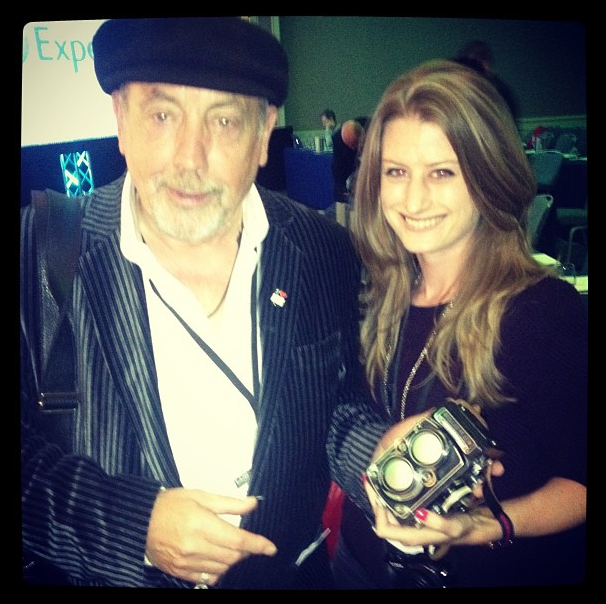“What I learn about a place illuminates something about myself. What I learn about myself illuminates something about a place. They enhance each other.”
– Don George, author of Lonely Planet’s Guide to Travel Writing
There were plenty of memorable speakers and tweet-able quotes at this year’s travel blogger conference, TBEX, which was held in Dublin during the first week of October. I’ve been meaning to share a few of my favourite tips from some of the top travel writers in the industry.
“Write like you have been commissioned by the New York Times,” was one of those, from travel writer and blogger Michael Collins who bounces between Dublin and Paris.
Another quote that has stuck with me is about bloggers who write about travel. It’s a quote from Audrey of Uncornered Market, one of the most successful and respected travel blogs around today. With her partner Dan, Audrey’s been on the road for years, and has traveled to around 75 different countries.
On the influence of bloggers, she told a conference hall full of us: “We are interpreters of experience, of a place, of people.”
How we interpret experiences through blogging goes hand in hand with storytelling, which was the topic of Don George’s session. And if anyone knows about travel writing, it’s Don. Not only is he the author of Lonely Planet’s Guide to Travel Writing, it’s also Editor at Large and Columnist for National Geographic’s Traveler magazine and Intelligent Traveler blog, and Features Editor and Blogger for Gadling.com. It was an honour to listen to him speak.
I took notes, of course, which I wanted to share with you, broken down into what to do before, during and after a trip in order to come up with some shareable stories when you return home.
BEFORE YOU LEAVE
- Take the time to research the place you’re going to so you learn about the history, culture and language ahead of your trip.
- Ask yourself: Why do I want to go there?
- Think about what you are looking forward to and what excites you most about the place.
- Identify your “passion points”. These are the points you are most excited about exploring. Maybe it’s food. Maybe it’s street art. Maybe it’s architecture. Whatever it is, these are the points that become the stepping stones of a great story.
- Read the travel writing of others and ask yourself what makes you want to keep reading.
DURING YOUR TRIP
- When you arrive and start exploring, ask yourself: What is the essence of this place? What are its essential characteristics?
- Take the time to just sit somewhere with life buzzing around you. Cafes and parks are great choices. Observe and take notes while you’re in the moment.
- While you’re taking notes, make sure you capture the senses. As yourself what you’re feeling, tasting, smelling, etc. rather than just jotting down the visuals.
- Focus on details. It’s the small truths of a place that illuminate the larger truths.
- Keep asking yourself: What am I learning here? What is the story that’s coming together in front of me?
- Be open to serendipity.
- Record snippets of dialog. Talk to locals. Be open and explain that you’re a travel blogger and you’re interested in learning about this place you’re visiting and the people who live there. You may discover more in five minutes than you would in five weeks without interacting.
WHEN YOU RETURN HOME
- This about what you learned and how you learned it.
- Recreate your journey through a lesson you learned in this place.
- Identify key moments – those crucial stepping stones of your story.
- Know your point. What do you want your reader to take away?
- Use humour where you can. It allows you to add a new level of connection with your readers.
- Get a sense of the music and rhythm of your writing by reading it out loud or share it with a friend who is willing to listen and give you constructive feedback.
- Aim for around 500-700 words. This is a good amount for online storytelling, but the storytelling itself is much more crucial than the number of words.
- Writing in your own voice is very important.
Photography is another part of storytelling and I was excited to be able to meet John Minihan after his keynote speech at the conference. He told us stories of life as an apprentice at The Daily Mail when he was a teenager, becoming the youngest staff photographer for the Evening Standard at age 21 and his memories of photographing Alfred Hitchcock, Andy Warhol, Lady Diana and the rock bands of the 60s and 70s. He showed me his Rolleiflex camera, which is in the picture below. He still shoots film which he develops in a darkroom and most of the time it’s only black and white.
Times have obviously changed, but what drove John to produce work for all those years, including so many famous photographs that have hung in London’s National Portrait Gallery and the Centre Georges Pompidou in Paris, is exactly what drives many photobloggers starting out today: “It’s about love,” was his simple explanation, an what better tip to creating a great blog than that?











5 Comments
Mandy
November 29, 2013 at 4:52 pmThis is fantastic advice Steph! I love this one the most: Write like you have been commissioned by the New York Times. I also like the idea of capturing the essence of a place and translating it for your readers. I’d really like to work on my travel writing next year.
littleobservationist
November 29, 2013 at 6:36 pmYes, I need to work on mine as well. That New York Times one is definitely one that makes you want to put some real effort in!
Emma @ Adventures of a London Kiwi
December 1, 2013 at 11:23 pmLove this post, so helpful and inspiring. I need to work on my writing, that’s for sure!
littleobservationist
October 20, 2014 at 7:33 pmSame here, Emma! They’re excellent tips to keep in mind because it can be easy to rush it and forget.
Cate Hogan
July 13, 2016 at 3:44 amSome great tips here, thanks for sharing. Each year I assess hundreds of novels and and the same five issues pop up time and time again, so I wrote this article http://catehogan.com/five-storytelling-top-tips/), which you might find helpful as well. Happy writing. 🙂